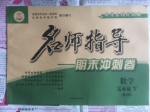题目内容
完形填空
Peter’s job was to examine cars when they crossed the frontier to make sure that they were not smuggling anything into the country. Every evening he would see a factory worker coming ____ the hill towards the frontier, ____ a bike with a pile of goods of old straw on it. When the bike ____ the frontier, Peter would stop the man and ____ him take the straw off and untie it. Then he would examine the straw very ____ to see ____ he could find anything, after which he would look in all the man’s pockets ____ he let him tie the straw again. The man would then put it on his bike and go off down the hill with it. Although Peter was always ____ to find gold or other valuable things ____ in the straw, he never found ____. He was sure the man was ____ something, but he was not ___ to think out what it could be. Then one evening, after he had looked ____ the straw and emptied the worker’s pockets ____ usual, he ____ to him, “Listen, I know you are smuggling things ____ this frontier. Won’t you tell me what it is? I’m an old man, and today’s my last day on the ____. Tomorrow I’m going to ____. I promise I shall not tell ____ if you tell me what you’ve been smuggling.” The worker did not say anything for ____. Then he smiled, turned to Peter and said quietly, “Bikes.”
1.A. towards B. down C. to D. up
2.A. filling B. pulling C. pushing D. carrying
3.A. arrived B. appeared C. came D. reached
4.A. ask B. order C. make D. call
5.A. carefully B. quickly C. silently D. horribly
6.A. that B. where C. how D. whether
7.A. before B. after C. first D. so
8.A. lucky B. hoping C. thinking D. wondering
9.A. had been B. hidden C. hiding D. have been
10.A. nothing B. something C. everything D. anything
11.A. taking B. smuggling C. stealing D. pushing
12.A. possible B. strong C. able D. clever
13.A.through B. thoroughly C. upon D. up
14.A.like B. more C. then D. as
15.A.told B. cried C. ordered D. said
16.A. cross B.past C. across D. into
17.A.thing B. work C. job D. duty
18.A.rest B. back C. retire D. retreat
19.A.everyone B. anyone C. no one D. someone
20.A.moment B. long time C. sometime D. some time
 名师指导期末冲刺卷系列答案
名师指导期末冲刺卷系列答案
